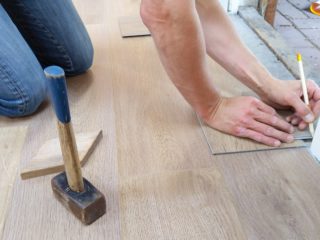Summary judgment granted where the Plaintiff could not produce objective evidence of an unsafe condition resulting in her slip and fall.
Date Case Heard: August 31, 2017 | Full Decision [PDF]
The Plaintiff brought an action against the Toronto Community Housing Corporation (TCHC) for injuries sustained when she allegedly fell on the vinyl floor in the corridor outside her apartment where she had been a tenant for nine years.
At her examination for discovery, the Plaintiff was unable to provide details as to the cause of her slip and fall and only provided her subjective belief that the corridor was slippery:
Q. 127: What did you fall on?
A. I’m honestly not sure.
…
Q. 135: You said that you slipped on something, and you didn’t know what it was, you said?
A. I don’t. No.
…
Q. 240. Again, you didn’t notice anything unusual when you were walking –…
A. No.
…
Q. 245. You didn’t see any water or any spills at that time?
A. I can’t recall.
Q. 246. Is it flat, the hallway?
A. Yes, it’s flat.
Q. 247. Any other observations of the hallway when you fell?
A. No, not at the time. I can’t recall.
Q. 248. What do you think caused your fall?
A. I’m not sure. … There had to be something on the floor that I did not see. I can’t recall.
…
Q. 253-255: You said that you – can you tell me how you fell?
A. I was just walking down with my keys in my hand … And maybe one letter in the same hand. And I’m walking down, and all of a sudden, my feet just went up like that. I just went up in the air and just – fell. I slid on something. I don’t know what it was. …
At the motion the Plaintiff presented evidence of her past issues and complaints related to the upkeep and cleanliness of the building. She argued that in the absence of any evidence specifically pinpointing a causative act or failure on the part of the TCHC in its housekeeping of the corridor on the day of the fall an inference could be drawn that the Plaintiff’s fall must have occurred by reason of defect in maintenance by the Defendant.
The TCHC admitted it was the owner and occupier of the building and thereby owed a duty of care pursuant to the Occupiers’ Liability Act. It argued the Plaintiff had failed to establish that there was any act or breach on the part of the TCHC that resulted in an unsafe or hazardous condition. The TCHC further submitted it had a reasonable system of maintenance but, even if it did not, absence of objective evidence of an unsafe condition is fatal to establishing a causal connection between any alleged breach of duty and the incident.
In granting summary judgment and dismissing the Plaintiff’s claim, the Court rejected the Plaintiff’s argument her subjective evidence was sufficient to establish an unsafe condition existed. The Court also did not accept that an inference could be drawn in the facts that an unsafe condition existed based on defective maintenance noting “an inference of causation must be based on objective facts, no subjective rationalizations.”
This is a good reminder case that the onus is on the Plaintiff to prove on a balance of probabilities that the Defendant is in breach of a positive duty of care and objective evidence must be presented to accomplish same.
Read the full decision [PDF]













